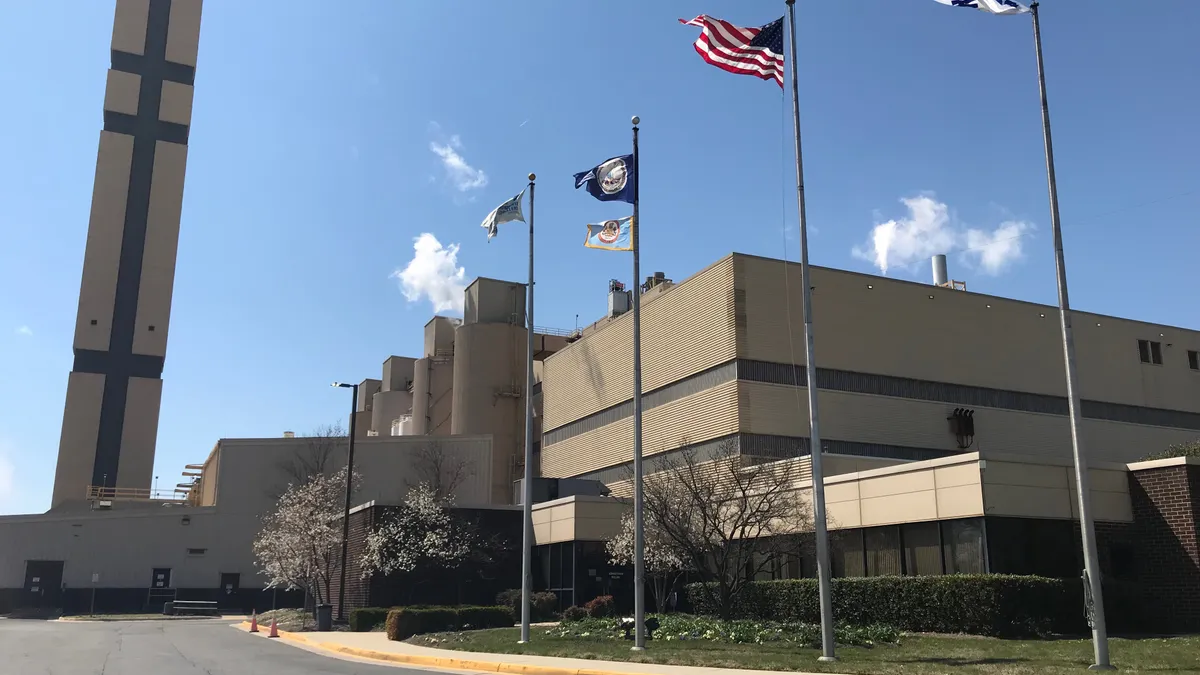Dive Brief:
- Covanta Environmental Solutions was awarded a 5-year contract by the New York Department of Environmental Conservation (DEC) to dispose of unused medications collected at 250 drop-off kiosks around the state, the company announced.
- The program is paid for with $2 million from the state's Environmental Protection Fund, according to the DEC. That money covers the purchase of compliant drug drop-off boxes, collection, transfer and disposal. The governor's proposed budget includes an additional $1 million to support the pilot program.
- James Regan, a spokesperson for Covanta, told Waste Dive in an email the material will be consolidated at a reverse distribution site in Manheim, PA and go to one or more waste-to-energy facilities from there. Specific destinations haven't been determined yet — and more partnerships are possible. "This is certainly an area we are growing all around the country," Regan wrote.
Dive Insight:
New York's pharmaceutical take-back pilot began in 2017 and has now grown to include 246 facilities. This second round, which expands from 74 participating facilities, will begin in May. Gov. Andrew Cuomo vetoed a bill that would have required chain pharmacies to provide drug disposal paid for by customers and instead directed DEC to prepare a report on the feasibility of implementing a statewide "product stewardship program" for collection and disposal of unused pharmaceuticals.
Covanta says its facilities are "uniquely suited" for the initiative because of a "long history" of securing and destroying pharmaceuticals as required by the Drug Enforcement Agencies. Covanta has disposed over 4 million lbs. of pharmaceuticals through take-back programs since 2010, according to the company.
This partnership with DEC fits into Covanta's larger business strategy, too. During the company's latest earnings call, Covanta CEO Steve Jones said the company should see profiled waste "come back very strongly," in part because the facility in Fairfax County, VA is back online. This type of material is seen as a way to maximize profitability for existing capacity. At the time, he said the company was looking at profiled waste driven by the nationwide opioid crisis, to look for "the highest priced waste to come in, in order to do a pocket switch with waste we're already taking."









